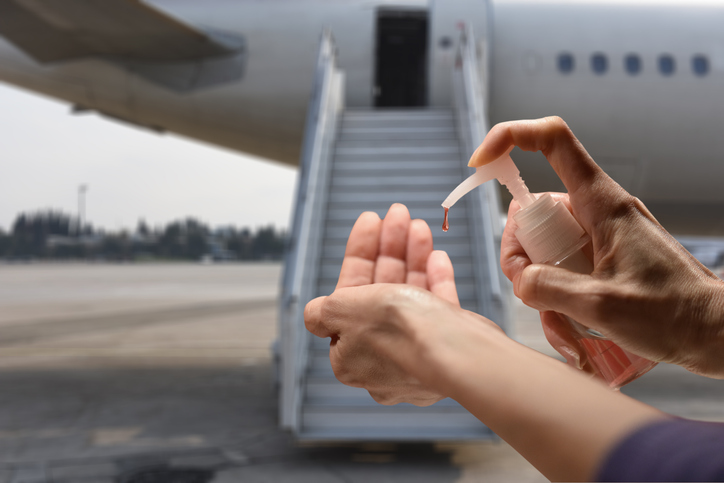

ANVISA and ANAC published new sanitary measures for the aviation and airport sectors
Epidemiological control has been strengthened to protect passengers and employees in operations
Subjects
At the request of the Ministry of Infrastructure, new health control guidelines for modernizing the current protocols for airport and aircraft operations were published. The determinations of the Brazilian National Health Regulatory Agency (ANVISA) and the Brazilian National Civil Aviation Agency (ANAC) were published in the
Technical Note No. 101/2020/SEI/GIMTV/GGPAF/DIRE5/ANVISA and updated the
Technical Note No. 62/ 2020/SEI/GIMTV/GGPAF/DIRE5/ANVISA.
Among the guidelines, there are new procedures for onboard service and campaigns to prevent and combat the virus. The aforementioned Technical Note complements the Protocol to Combat Covid-19 at Ports, Airports, and Borders, updated by ANVISA on March 30, 2020, and other recommendations by ANAC and ANVISA.
The documents are in compliance with the Provisional Presidential Decree No. 926, of March 20, 2020, and Law No. 13,979, of February 6, 2020, which regulate conducts and rules to contain and combat the Covid-19 pandemic.
Requirements for air travel and airport services
Although the authorities discourage traveling during the coronavirus pandemic, considering the increase in the number of victims in Brazil, some guidelines must be followed when providing air transport services of passengers and cargo or airport services.The determinations below must be followed by users, passengers, crew, service providers, employees, airlines, and airports:
- Mandatory use of face masks by passengers and crew during air travel and by airport employees and service providers;
- Adoption of new procedures for onboard service, with the recommendation to suspend them during domestic flights and prioritize the offer of individually packaged and previously sanitized food and beverages for international flights;
- Social distancing of at least two meters between people;
- Use of Personal Protective Equipment by private and public employees working at the airport;
- Campaigns to prevent and combat the virus, such as voice announcements and warnings determined by ANVISA on all flights and at embarkation and disembarkation areas;
- Adoption of measures to discourage crowds in places such as food courts, check-in queues, aircraft embarkation and disembarkation areas, baggage claim, and others; and
- Intensified cleaning and disinfection of airport areas and aircraft.
The Technical Note also brings specific recommendations for air taxi operators, especially those who are performing aeromedical operations.
The above-mentioned sanitary measures are reexamined at each variation of the epidemiological scenario of the disease, and eventual modifications of the measures will take place according to the determinations of the Ministry of Health and the World Health Organization (WHO).
It is important to emphasize that the non-compliance with such measures may not only lead to civil, criminal, and administrative liability of offenders but may also contribute to the spread of the virus.
For further information, contact the Mattos Filho Aviation and Life Sciences practice areas.


